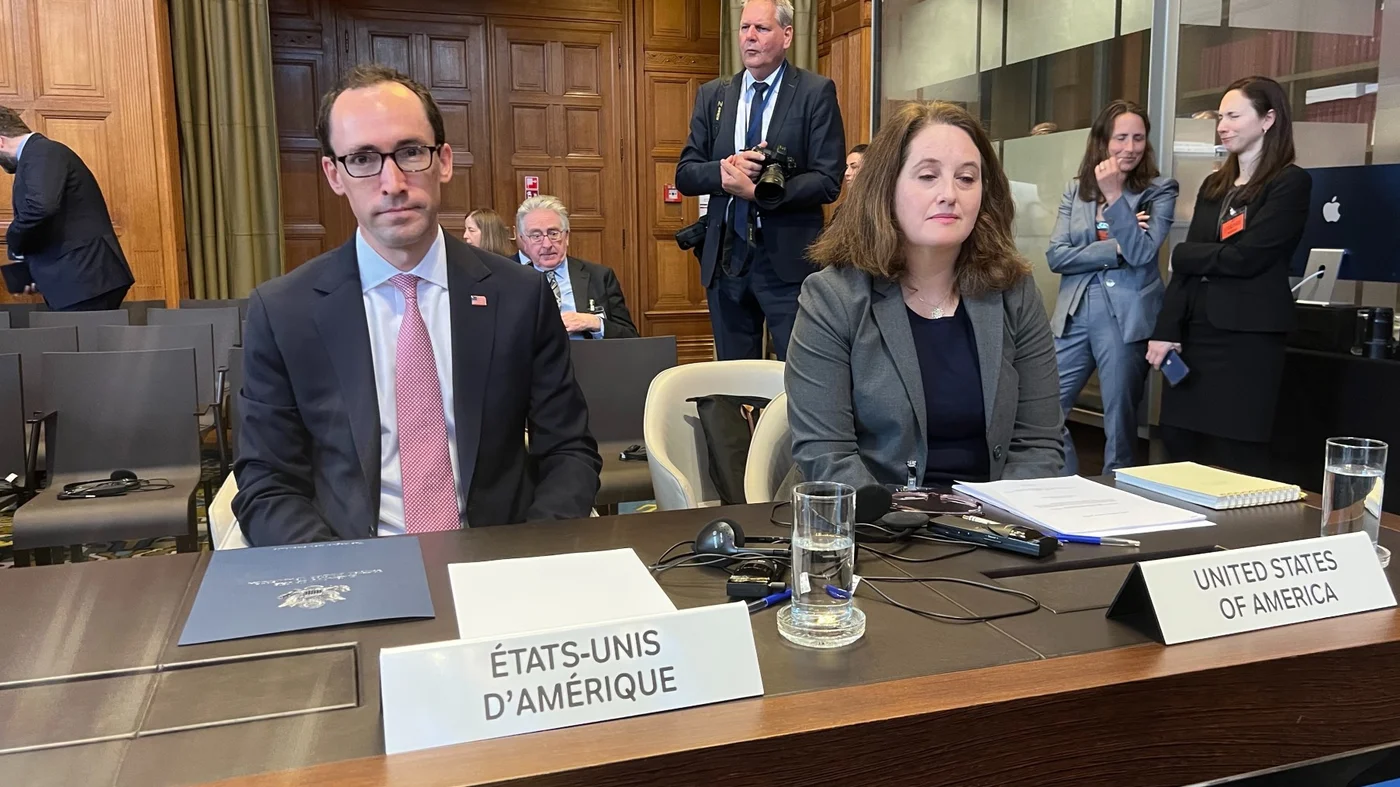US tells ICJ that law allows Israel to attack UN agencies that aren't 'impartial'

A US official addressing the International Court of Justice (ICJ) on Wednesday defended Israel’s attacks on United Nations agencies in Gaza as potentially lawful.
On the third day of hearings by the World Court in The Hague examining Israel’s legal humanitarian obligations in occupied Palestine, the US rejected the opinion held by the majority of states that Israel has breached international law in its attacks on UN and international organisations during its war on Gaza since October 2023.
The current ICJ proceedings have been prompted by Israel banning the UN agency for Palestinian refugees (Unrwa) in October.
The ban sparked global outrage and calls for Israel to be ejected from the United Nations due to accusations that it violated the founding charter, particularly the privileges and immunities enjoyed by UN agencies.
Opposing the arguments delivered by the UN’s top legal official on Monday and by 12 states that have also spoken to the court this week, the US official said that international law “does not impose any unqualified obligations on an occupying power” with respect to humanitarian assistance provided by the UN, international organisations and third states.
“In the law of occupation, military and humanitarian interests converge,” said Joshua Simmons, the senior bureau official of the office of the legal adviser at the US Department of State.
Simmons referred to Article 59 of the Fourth Geneva Convention of 1949, which concerns the humanitarian obligations of an occupying power, saying the provision does not impose an absolute duty to permit relief to the population under its control.
When it comes to third states, the article states that relief schemes “may be undertaken either by states or by impartial humanitarian organisations such as the International Committee of the Red Cross”.
Reflecting Israel’s view, Simmons questioned the impartiality of Unrwa as a relief provider.
'Serious concerns'
“There are serious concerns about Unrwa’s impartiality, including information that Hamas has used Unrwa’s facilities, and that Unrwa’s staff participated in the 7 October terrorist attack against Israel,” he said.
“Occupation law preserves an occupying power's discretion to address its security interests, including the ability to curtail the activities of third states or organisations that are contrary to its security,” he said.
“Given these concerns, it is clear that Israel has no obligation to permit Unrwa specifically to provide humanitarian assistance,” Simmons added.
Israel's government has long been hostile towards Unrwa, partially because it upholds the refugee status of Palestinians who were expelled from their homes in the 1948 Nakba, alongside that of their descendants.
In January 2024, Israel accused 12 Unrwa workers of involvement in the 7 October Hamas-led attacks, alleging they had distributed ammunition and aided in civilian kidnappings.
A UN inquiry published in April last year found no evidence of wrongdoing by Unrwa staff, noting that Israel had neither responded to requests for names and information nor "informed Unrwa of any concrete concerns relating to Unrwa staff since 2011".
The US Department of Justice last week decided that Unrwa was not immune from legal action in the United States.
Unrwa is the primary source of humanitarian support for an estimated 5.9 million Palestinian refugees in occupied Palestine and neighbouring countries.
This includes the provision of basic services such as education, food, medical care and the distribution of fuel. Its closure may lead to the collapse of the primary lifeline for many Palestinians.
According to the organisation's latest situation report, since October 2023, Israel has killed at least 290 Unrwa staff members and carried out at least 830 attacks on the agency's premises and people sheltering in them.
Following Simmons, Russia’s delegate argued that Israel’s measures against Unrwa, including the laws banning it, violate international humanitarian law and the UN charter.
“Implementation of the laws will undoubtedly worsen the situation and significantly hinder the Palestinian people’s right to self determination,” Maksim Musikhin, director of the legal department at the Russian foreign ministry, told the court.
He showed support for calls to nominate Unrwa for a Nobel Peace Prize for its humanitarian efforts. Such award would be "timely and well deserved", he said.
This is a developing story...